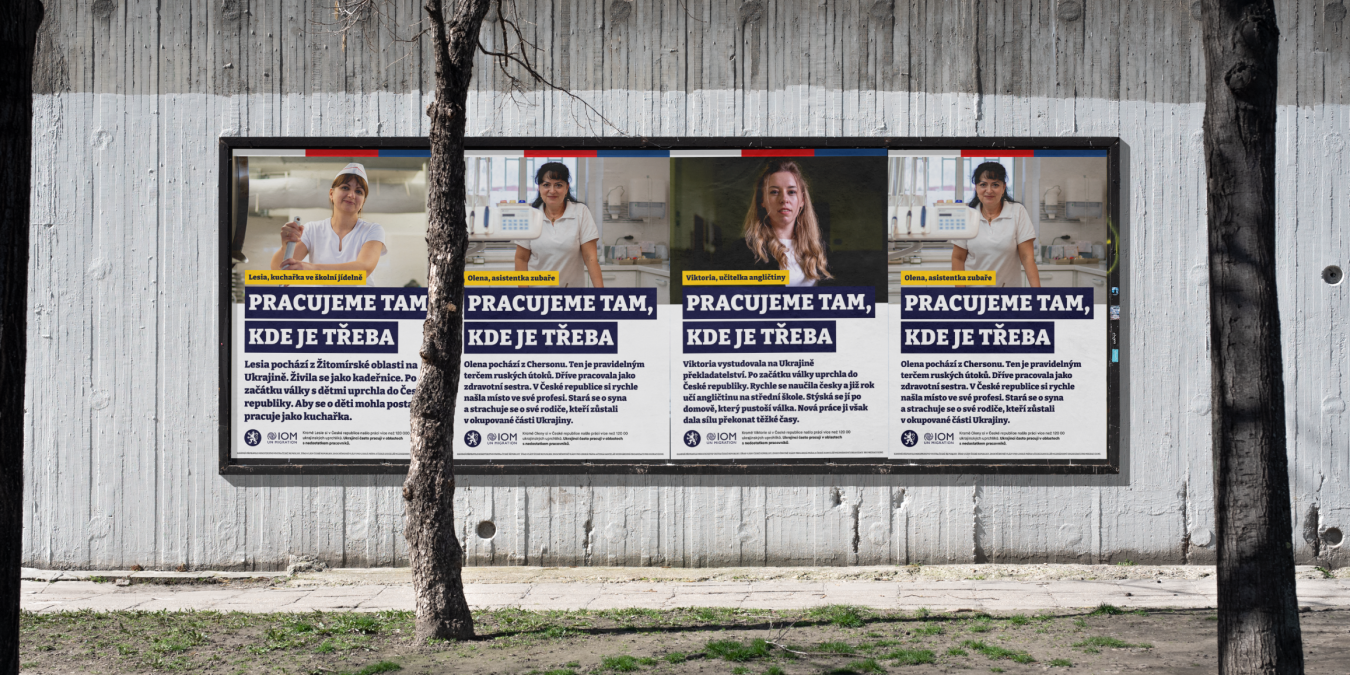Ukrainian refugees already contribute more money to the state than they receive in support
Published: Apr 10, 2024 Reading time: 4 minutes Share: Share an articleSpending on support for refugees has declined significantly since the middle of last year. On the contrary, the revenue contributed to state coffers by Ukrainians is growing - more than CZK 35 billion in two years, according to Ministry of Labour and Social Affairs data. Specifically, in the first month of this year alone, support for refugees cost CZK 0.9 billion, but the state received CZK 1.9 billion from insurance premiums and taxes.

Last year's income and expenditure in support of Ukrainian refugees were comparable
Almost 340,000 people with temporary protection remain in the Czech Republic. According to Ministry of the Interior data, less than 30% are children, young people under 17, and seniors over 65. Out of more than 120,000 of those who are economically active, women account for more than 60%.
The balance of income and expenditure in support of Ukrainian refugees was already equal last year. Both spending and revenues amounted to just under CZK 22 billion. While spending exceeded income in the year's first half, income dominated in the second half. For the fourth quarter of 2023, the difference was 1.9 billion in favour of the state budget, plus an additional billion in January 2024.
Although many Ukrainians and their families still hope to return home, they now reside in the country, learn the language, and try to provide for their families. Three-quarters of those who can work are already doing so, and most (88%) are legal, with many finding work through employment agencies. Approximately 16,000 job-seekers are registered and looking for work. Increasingly, working wages are the primary source of income for refugee households.
Ukrainians are not pushing Czech citizens out of their jobs
Refugees in the Czech Republic are helping us solve a long-term labour shortage. According to the Ministry of Labour and Social Affairs, refugees have not displaced Czech citizens from their jobs. 4 out of 5 Ukrainians found employment in precarious positions or those for which qualifications were not required.
"If those employed could work in positions corresponding to their education and original profession, it would benefit them, Czech society, and the state. A woman with one child who works for minimum wage brings CZK 7,600 a month to the state. If she were to work for a wage commensurate with her qualifications, with a salary of, for example, CZK 32,000, the state would receive CZK 15,555 per month," adds Zuzana Ramajzlová.
Only the most vulnerable receive the Humanitarian Allowance (HuD), and the number of beneficiaries has declined. Today, there are three times fewer beneficiaries than at the beginning of the Russian invasion - no more than 30% of the 80% of refugees now receive the benefit. Around three-quarters of beneficiaries are vulnerable people, 60% of whom are children. In nearly 70% of cases, people in this target group pay for their own rental accommodation.
Housing represents the most significant expense for refugee households. 70% of refugees live in rented accommodation, and 80% of those pay their rental costs, while 16% of Ukrainians stay in hostels.
In addition to HuD, refugees can only apply for immediate emergency assistance, which can cover costs such as the required deposit for moving from a hostel to a rental apartment. However, in the first two months of this year, only 59 applications were submitted to the state, some of which the Labour Office rejected.
The state will allow economically self-sufficient refugees to obtain long-term residency status
The campaign "We Work Where We Are Needed" — organised by the Ministry of the Interior, the Office of the Government, the Government Commissioner for Human Rights, and the Czech office of the International Organisation for Migration — highlights the contribution of all refugees and their desire not to live an indefinite state of limbo without a sense of what the future holds. At the same time, the Ministry of the Interior has presented a draft law that will allow economically self-sufficient Ukrainian refugees who do not receive any state social support to obtain long-term residence status. The new measure does not replace the institution of temporary protection, which will continue in the coming year.
You can read about how we help the most vulnerable refugees in the Czech Republic here.



